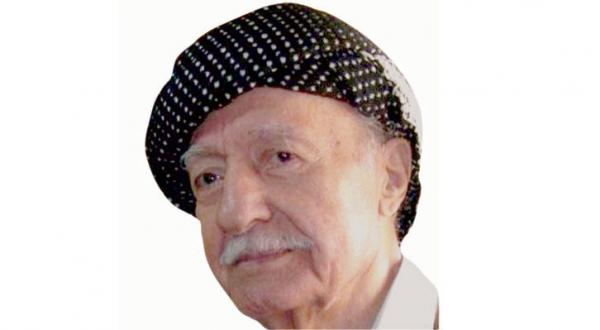London – Followers of Iraqi developments may have forgotten Aziz Mohammed, who was laid to rest in Erbil on Thursday. He was certainly a prominent player on the Iraqi scene in the second half of the 20th century.
He headed the Iraqi Communist Party from 1964 to 1993, a period that witnessed major Iraqi developments that started with the return of the Baath Party to power in July 17, 1968 and reached the Iraqi invasion of Kuwait in 1990 and its aftermath.
After leaving the party, Aziz Mohammed, who served some time in jail, spoke about some of the Iraqi events that he witnessed. He relayed a story recounted to him by Saddam Hussein about a failed assassination attempt against him and Iraqi President Ahmed Hassan al-Bakr.
Al-Bakr was on a trip to Bulgaria and it was only natural for Saddam to welcome him back at the airport upon his return to Baghdad. Director of National Security Nazim Kazar saw it as an opportunity to assassinate the two officials. Bulgarian President Todor Zhivkov decided at the last minute however for al-Bakr to stay a few extra hours and so his return to Baghdad was delayed. Kazar believed that the agencies knew of his conspiracy and he fled after his conspirators kidnapped the ministers of defense and interior. The ordeal eventually ended with Kazar’s death.
Mohammed quoted al-Bakr as saying: “Kazar used to torture a prisoner until he was moments away from death. He would then order a kebab and eat it while he was pressing his foot on the neck of the prisoner.”
Furthermore, he added that al-Bakr had contacted the communists before the Baath’s return to power, asking for their cooperation, but they refused.
“In June 1968, we informed Ahmed Hassan al-Bakr that they (Baath) were preparing to seize power through our comrade Makram al-Talabani. They requested our cooperation, but we were not in a position that would allow us to accept it because of mounting past conflicts and the overall morale of the party,” said Mohammed.
On Saddam, he commented: “The real key to understanding him is the same key that applies to all dictators. In Saddam’s case however, he could not tolerate a person who was fit to take his place.”
